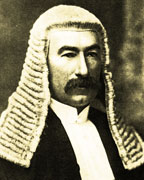"You can hear the dew falling, and the hushed town breathing."
"Only your eyes are unclosed to see the black and folded town fast, and slow, asleep."
"And you alone can hear the invisible starfall, the darkest-before- dawn minutely dewgrazed stir of the black, dab-filled sea where the Arethusa, the Curlew and the Skylark, Zanzibar, Rhiannon, the Rover, the Cormorant, and the Star of Wales tilt and ride."
"Listen. It is night moving in the streets, the processional salt slow musical wind in Coronation Street and Cockle Row, it is the grass growing on Llareggub Hill, dewfall, starfall, the sleep of birds in Milk Wood."
"From where you are, you can hear their dreams."
"We are not wholly bad or good, who live our lives under Milk Wood" - prayer of the Reverend Eli Jenkins
"Black as a chimbley!"
"And No-Good Boyo is up to no good... in the wash house."
“And before you let the sun in, mind it wipes its shoes.”
“Here’s your arsenic dear,
And your weed killer biscuit.
I’ve throttled your parakeet.
I’ve spat in the vases.
I’ve put cheese in the mouse holes.
Here’s your….
…. Nice tea, dear.”
“From Beynon Butchers in Coronation Street, the smell of fried liver sidles out with onions on its breath…”
Images from Heidelberg Theatre Company Production 17 Nov - 3 Dec 2011

















































